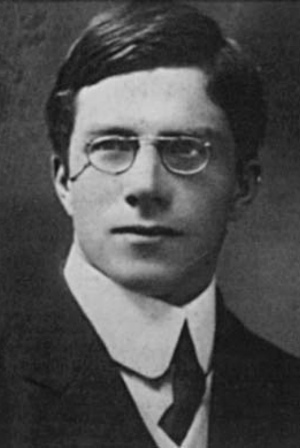Origine: Da Smoking: the cancer controversy. Some attempts to assess the evidence http://www.york.ac.uk/depts/maths/histstat/smoking.htm; citato in William T. Whitby, Fumare vi fa bene, p. 6.
Ronald Fisher frasi celebri
Origine: Citato in AA.VV., Il libro dell'ecologia, traduzione di Roberto Sorgo, Gribaudo, 2019, p. 30. ISBN 9788858024362
Ronald Fisher: Frasi in inglese
“[…] the uncontrolled causes which may influence the result are always strictly innumerable.”
The Design of Experiments (section II.9, eighth edition, 1971, Hafner Publishing Company, New York) as quoted by George Casella in Statistical Design (p. 18, 2008, Springer).
Since 1960s
Presidential Address to the First Indian Statistical Congress, 1938. Sankhya 4, 14-17.
1930s
On the objection (still often made by creationists) that the theory of evolution predicts evolution occurs "only by chance", Ch. 2, p. 37.
The Genetical Theory of Natural Selection (1930)
The evolutionary modification of genetic phenomena. Proceedings of the 6th International Congress of Genetics 1, 165-72, 1932.
1930s
Discussion to ‘Statistics in agricultural research’ by J.Wishart, Journal of the Royal Statistical Society, Supplement, 1, 26-61, 1934.
1930s
Eugenics, academic and practical. Eugenics Review, 27, 95-100, 1935
1930s
On natural selection acting on sex ratio: Fisher's principle, Ch. 6, p. 141.
The Genetical Theory of Natural Selection (1930)
Eugenics, academic and practical. Eugenics Review, 27, 95-100, 1935.
The original has ‘to store it as’ inserted before the final words ‘a warehouse’, likely a mistake left from an earlier draft.
1930s
Defining the fundamental theorem of natural selection, Ch. 2, p. 35.
The Genetical Theory of Natural Selection (1930)
“After all, it is a common weakness of young authors to put too much into their papers.”
Contributions to Mathematical Statistics, New York: Wiley, 1950, p. 10.308a.
1950s
The Design of Experiments, Edinburgh: Oliver and Boyd, 1935, p. 18
1930s
"Presidential Address to the First Indian Statistical Congress" https://www.gwern.net/docs/statistics/decision/1938-fisher.pdf, 1938. Sankhya 4, 14-17.
1930s
“Fairly large print is a real antidote to stiff reading.”
31 May 1929, in a letter to K.Sisam, Oxford University Press. Printed in Natural Selection, Heredity, and Eugenics, p. 20, ed. J.H.Bennett, Oxford: Clarendon Press, 1983.
1910s–1920s
Preface, p. ix.
The Genetical Theory of Natural Selection (1930)
Statistical Methods for Research Workers, Edinburgh: Oliver and Boyd, 1925, p. 43.
1910s–1920s
The causes of human variability. Eugenics Review 10, 213-220, 1918.
1910s–1920s
Natural selection from the genetical standpoint. Australian Journal of Science 22, 16-17, 1959.
1950s
Quoted by K.Mather, Heredity 30, 89–91, 1973.
Since 1960s
“Natural selection is a mechanism for generating an exceedingly high degree of improbability.”
Reported by J. S. Huxley in Evolution in Action, London: Chatto and Windus, 1953.
1950s
25 February 1933, in a letter to L. Hogben. Printed in Natural Selection, Heredity, and Eugenics, J.H.Bennett, Oxford: Clarendon Press, 1983, p. 218.
1930s
Subtitle to Science and Christianity, Friend 113, 995–996, 1955.
in full: ‘Christian children should … be taught that faith does not mean credulity; but is a quality, very like courage, which makes one hold fast to that which is good, … .
1950s
W. Allen Wallis (1952) at the University of Chicago while honoring Fisher with the Honorary degree of Doctor of Science; cited in: George E. P. Box (1976) " Science and Statistics http://www-sop.inria.fr/members/Ian.Jermyn/philosophy/writings/Boxonmaths.pdf" Journal of the American Statistical Association, Vol. 71, No. 356. (Dec., 1976), pp. 791-799.
Retrospect of criticisms of the theory of natural selection. In Evolution as a Process, eds. J.S.Huxley, A.C.Hardy and E.B.Ford, London: Allen and Unwin, 1954.
1950s
Statistical Methods and Scientific Inference, Edinburgh: Oliver and Boyd, 1956, p. 31.
1950s
On the fundamental theorem of natural selection, Ch. 2, p. 36.
The Genetical Theory of Natural Selection (1930)
“No efforts of mine could avail to make the book easy reading.”
Preface, p. x.
The Genetical Theory of Natural Selection (1930)
“Natural Selection is not evolution.”
Preface, opening sentence, p. vii.
The Genetical Theory of Natural Selection (1930)
